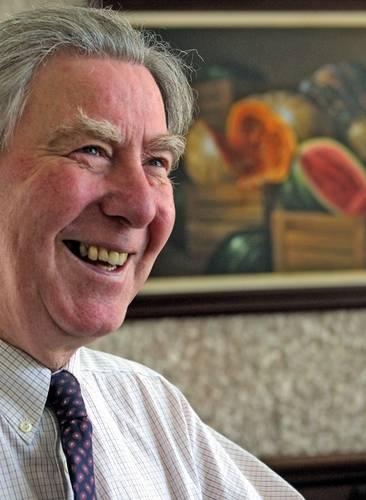Professor David A. Brading (1936-2024)

Professor David A. Brading, a prominent historian of Latin America, passed away on 20 April 2024 after a long illness. His works explore the history of Latin America from the colonial era to the emergence of nation-states.
Brading pursued his higher education in history at Cambridge and obtained a PhD from the University of London. Following a brief stint as an assistant professor at Yale and California, Brading returned to Cambridge in 1973 to focus on researching and teaching Latin American history. He continued to serve in this capacity until his retirement in 2003.
Brading’s research focused mainly on Mexico and covered diverse topics. He wrote about colonial mining and its impact on the international scale and studied the social and political dynamics of Mexico’s most significant silver-producing regions. In ‘Haciendas and Ranchos in the Mexican Bajío, 1700-1860’, he offered a detailed study of trade, rural society, and agricultural production in central Mexico.

Brading’s extensive knowledge of the social, political, and economic structures of the most prosperous regions of colonial Mexico formed the basis of his insightful and still widely read analysis of the meaning and consequences of the Bourbon Reforms. In 'Miners and Merchants and Bourbon Mexico, 1763-1810', Brading showed how the ambitious government program Spain launched in the eighteenth century to achieve efficient and lucrative control over its Spanish-American colonies opened an irreparable fracture in its colonial empire.
A significant part of Brading’s studies involved the emergence and substance of Spanish American Creole consciousness. This concept refers to the mindset of the most privileged groups of men born in the New World. These individuals identified themselves as heirs of European culture and traditions, especially Catholicism, while also having an idealized view of pre-Columbian societies, particularly the great Aztec and Inca empires.
In ‘The First America: Spanish Monarchy, Creole Patriots, and the Liberal State, 1492-1867’ - his most widely cited book - he explored the birth and shaping of a mindset that played a significant role in the emergence of independence movements and provided the ideological foundations of the first American republics.
As the Centre for Latin American Studies director for many years, Brading encouraged interdisciplinary exchange, promoted Latin American studies in the United Kingdom, and hosted prominent Latin American intellectuals visiting Cambridge.
Throughout his accomplished career, he has been acknowledged for his contributions by numerous academic societies in Latin America and Europe, and the governments of Peru and Mexico.
His friends and colleagues will miss his incisive commentary, thought-provoking questions, amiable demeanour, and unending humour.
